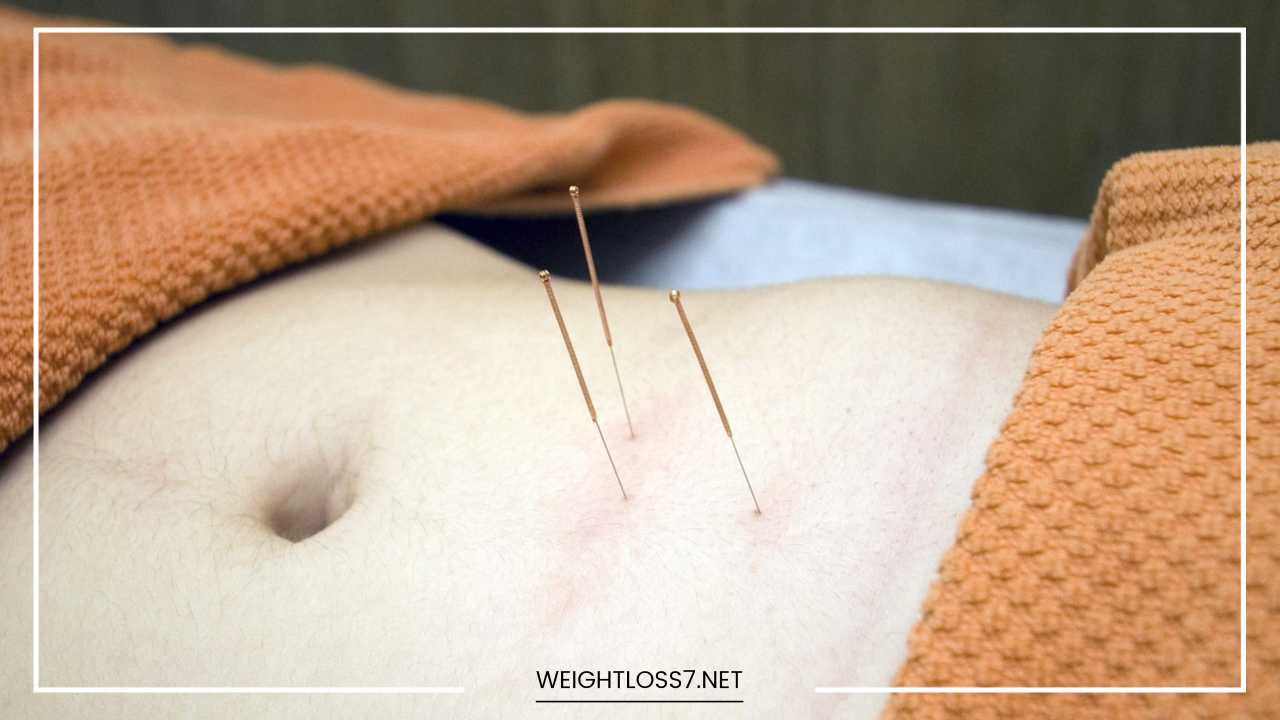Acupuncture: Benefits, Safety & More

Acupuncture
Acupuncture: Unveiling the Ancient Art of Healing
Acupuncture, a cornerstone of traditional Chinese medicine (TCM), has traversed millennia, leaving an indelible mark on healthcare practices worldwide.
It involves the insertion of fine needles into meticulously chosen points on the body, aiming to restore balance, alleviate pain, and promote overall well-being.
While some may view it with a tinge of skepticism, acupuncture has steadily gained acceptance in recent years, carving out a niche alongside conventional medicine for treating a multitude of conditions.
Delving into the Depths: Traditional Beliefs vs. Modern Science
TCM theory postulates the existence of vital energy, or qi, coursing through the body along invisible pathways called meridians.
Acupuncture is believed to work by regulating the flow of qi through these meridians. An imbalance in qi is thought to manifest as various ailments.
By inserting needles into specific acupoints, practitioners aim to restore balance, alleviate blockages, and stimulate the body’s natural healing mechanisms.
Modern science offers a different lens through which to view acupuncture’s efficacy. While the concept of qi remains an enigma, scientific research has unveiled some of the mechanisms by which acupuncture might exert its effects.
Studies have shown that acupuncture can trigger the release of endorphins, the body’s natural painkillers.
It may also stimulate the nervous system, influencing the body’s inflammatory response and promoting the release of beneficial neurochemicals.
A Spectrum of Benefits: Where Acupuncture Shines
Research has yielded a growing body of evidence supporting the effectiveness of acupuncture in managing a diverse range of conditions.
Often, it is used in conjunction with conventional treatments, offering a holistic approach to healthcare. Here’s a closer look at some of the most promising applications of acupuncture:
-
Chronic Pain Management: Chronic pain, a persistent and debilitating condition, can significantly impact an individual’s quality of life. Acupuncture has emerged as a valuable tool in managing chronic pain, including lower back pain, neck pain, headaches, and osteoarthritis. Studies have shown it to be as effective as pain medication in some cases, offering a non-addictive and potentially long-term solution.
-
Migraine and Headache Relief: Throbbing headaches and debilitating migraines can disrupt daily life. Acupuncture has been shown to reduce the frequency and intensity of these conditions. Studies suggest that acupuncture may help regulate neurotransmitters involved in pain perception, offering a natural approach to managing headaches and migraines.
-
Combating Nausea and Vomiting: Nausea and vomiting can arise from various causes, including chemotherapy, pregnancy (morning sickness), and post-surgical anesthesia. Acupuncture has been shown to be effective in alleviating these symptoms. It is thought to work by stimulating the nervous system and regulating the release of hormones associated with nausea and vomiting.
-
Finding Relief from Allergies: Seasonal allergies and hay fever can cause a cascade of unpleasant symptoms. While acupuncture is not a cure, some studies suggest it may help alleviate allergy symptoms by modulating the immune system’s response to allergens.
-
Stress Management in a Modern World: In today’s fast-paced world, stress is a pervasive issue. Acupuncture can be a powerful tool for promoting relaxation and reducing stress. By stimulating the nervous system and promoting the release of calming neurotransmitters, acupuncture can help individuals manage stress and improve their overall well-being.
A Step-by-Step Journey: What to Expect During an Acupuncture Session
A typical acupuncture session takes place in a tranquil and calming environment. The acupuncturist will begin by conducting a comprehensive consultation, inquiring about your health concerns, medical history, and lifestyle. They may also take your pulse and examine your tongue, which are traditional methods of diagnosis in TCM.
Once the consultation is complete, the acupuncturist will use sterile, thin needles made of stainless steel or a combination of metals.
These needles are incredibly fine and flexible, minimizing discomfort during insertion. The acupuncturist will meticulously locate specific acupoints on your body based on your condition and TCM principles. You may feel a dull ache or tingling sensation during insertion, but these sensations are typically mild and transient.
The needles are usually retained for 15-30 minutes while you rest comfortably in a reclining position. Some acupuncturists may incorporate other TCM modalities like moxibustion (burning dried mugwort near acupoints) or cupping therapy (applying suction cups to the skin) into the treatment plan.
Is Acupuncture Safe? Addressing Common Concerns
Acupuncture is generally considered safe when performed by a qualified and licensed practitioner. Here are some key points to ensure a safe and positive experience:
- Choosing a Qualified Practitioner: Seek out acupuncturists who are licensed by your state’s medical board and hold certifications from reputable organizations like the National Certification Commission for Acupuncture and Oriental Medicine (NCCAOM).
- Open Communication is Key: Discuss your health concerns, medications you are taking, and any allergies you may have with your acupuncturist before starting treatment. This transparency ensures a personalized and safe treatment plan.
- Hygiene is Paramount: Reputable acupuncturists prioritize hygiene. Ensure they use sterile, disposable needles for each treatment, minimizing the risk of infection.
Acupuncture: A Complementary Approach to Healing
Acupuncture is not a standalone solution for every health concern. It may not be suitable for everyone, and some conditions might require a multi-pronged approach. However, when integrated into a holistic healthcare plan, acupuncture can be a valuable tool.
If you’re considering acupuncture, discuss it with your doctor to determine if it’s right for you. Acupuncture can be a safe and effective complement to conventional medicine, helping you manage pain, improve your overall health, and achieve a greater sense of well-being. Here are some additional factors to consider:
Cost and Insurance Coverage:
The cost of acupuncture can vary depending on your location, the experience of the practitioner, and the duration of treatment.
Some insurance plans may cover acupuncture, so it’s worthwhile to check with your provider to understand your coverage options.
Number of Treatments:
The number of acupuncture sessions you’ll need depends on your individual condition and treatment goals. For chronic conditions, a series of treatments spread over several weeks is often recommended.
However, some acute conditions may respond well to just a few sessions. It’s important to discuss a treatment plan with your acupuncturist to determine the best course of action for you.
Exploring Different Styles of Acupuncture:
TCM encompasses various styles of acupuncture, each with its own approach and techniques. Some of the most common styles include:
- Traditional Chinese Acupuncture (TCA): This is the foundation of acupuncture, focusing on balancing qi through specific acupoints based on TCM principles.
- Scalp Acupuncture: This style focuses on inserting needles into specific points on the scalp, believed to be effective for neurological conditions like headaches and migraines.
- Auricular Acupuncture: This style targets points on the ear, thought to correspond to various organs and systems in the body.
- Five Element Acupuncture: This approach incorporates the five element theory of TCM (wood, fire, earth, metal, and water) to tailor treatment plans to individual imbalances.
Acupuncture Research: An Evolving Landscape
Research on acupuncture is ongoing, and scientists are continually working to understand its mechanisms of action and effectiveness for various conditions. While some studies have yielded promising results, others have shown inconclusive evidence.
The National Institutes of Health (NIH) categorizes acupuncture as a “promising” therapy for various conditions, highlighting the need for further research to solidify its role in evidence-based medicine.
Finding the Right Acupuncturist:
Finding a qualified and experienced acupuncturist is crucial for a positive experience. Here are some tips to help you in your search:
- Seek Referrals: Ask your doctor or other healthcare providers for recommendations.
- Check Credentials: Ensure the acupuncturist is licensed by your state’s medical board and holds certifications from reputable organizations like the NCCAOM.
- Read Online Reviews: Look for reviews from previous patients to get a sense of the acupuncturist’s experience and bedside manner.
- Schedule a Consultation: Many acupuncturists offer initial consultations to discuss your health concerns and determine if acupuncture is right for you.
Acupuncture: A Journey Towards Balance and Well-being
Acupuncture offers a unique and time-tested approach to health and wellness. By understanding the traditional beliefs and the growing body of scientific evidence, you can make an informed decision about whether acupuncture might be a valuable addition to your healthcare routine.
With its potential to alleviate pain, reduce stress, and promote overall well-being, acupuncture can empower you to take charge of your health and embark on a journey towards a more balanced and fulfilling life.
Beyond the Needles: Exploring Other TCM Modalities
Acupuncture is just one facet of traditional Chinese medicine. TCM encompasses a rich tapestry of practices that work synergistically to promote health and well-being. Here’s a glimpse into some other TCM modalities that may be integrated with acupuncture for a holistic approach:
-
Herbal Medicine: TCM utilizes a vast array of medicinal herbs, individually or in carefully formulated blends, to address various health concerns. These herbs are believed to possess specific properties that can restore balance within the body.
-
Tuina Massage: This therapeutic massage technique involves applying pressure and manipulations to specific points on the body to promote relaxation, improve circulation, and alleviate pain.
-
Cupping Therapy: This ancient technique involves applying suction cups to the skin to create localized negative pressure. It is believed to stimulate blood flow, alleviate muscle tension, and promote healing.
-
Moxibustion: This modality involves burning dried mugwort, a medicinal herb, near specific acupoints to stimulate the flow of qi and promote healing. The warmth generated by moxibustion is believed to have various therapeutic benefits.
-
Dietary Therapy: TCM emphasizes the importance of diet in maintaining health. A TCM practitioner may recommend dietary modifications based on your individual needs and constitution to support your acupuncture treatment.
The Integration of Eastern and Western Medicine
The bridge between traditional Chinese medicine and Western medicine is continuously being built. While acupuncture may not be a mainstream treatment in Western medicine yet, there is a growing openness to exploring its potential benefits.
Many healthcare providers are now recognizing the value of integrative medicine, which combines conventional therapies with complementary and alternative medicine practices like acupuncture.
This collaborative approach allows patients to benefit from the strengths of both Eastern and Western medicine, potentially leading to improved outcomes.
Acupuncture for Specific Conditions: A Deeper Look
While the previous sections explored the general applications of acupuncture, here’s a more focused exploration of its potential benefits for specific conditions:
-
Arthritis: Studies suggest that acupuncture may help manage pain and improve joint function in individuals with osteoarthritis.
-
Anxiety: Acupuncture has shown promise in reducing anxiety symptoms and promoting relaxation.
-
Insomnia: Acupuncture may be a helpful tool for improving sleep quality and reducing symptoms of insomnia.
-
Digestive Disorders: Acupuncture may help alleviate symptoms associated with digestive disorders like irritable bowel syndrome (IBS).
-
Menstrual Cramps: Studies have shown that acupuncture can be effective in reducing pain associated with menstrual cramps.
Acupuncture and Fertility:
Acupuncture is increasingly being explored as a complementary therapy for fertility challenges. Some studies suggest it may improve blood flow to the uterus, regulate hormones, and reduce stress, all of which can contribute to a more favorable environment for conception.
The Future of Acupuncture: Research and Innovation
The field of acupuncture research is constantly evolving. Scientists are exploring the mechanisms by which acupuncture works and its effectiveness for various conditions.
Additionally, there’s ongoing innovation in the development of new acupuncture techniques and tools.
Acupuncture: A Path to Self-Care and Empowerment
Acupuncture empowers individuals to take a proactive approach to their health and well-being. By incorporating acupuncture into your self-care routine, you can explore a natural and potentially effective approach to managing pain, reducing stress, and promoting overall health.
Remember, acupuncture is a journey, not a destination. Be patient, open-minded, and communicate openly with your acupuncturist to create a personalized treatment plan that aligns with your health goals.
Final Word
Acupuncture, with its rich history and growing body of evidence, offers a unique and valuable approach to healthcare.
By understanding its traditional roots, scientific basis, and potential applications, you can make an informed decision about whether acupuncture might be a beneficial addition to your wellness journey.
As you embark on this path, remember that acupuncture is a collaborative effort between you and your acupuncturist.
With open communication and a commitment to well-being, acupuncture can empower you to take charge of your health and cultivate a more balanced and fulfilling life.

















